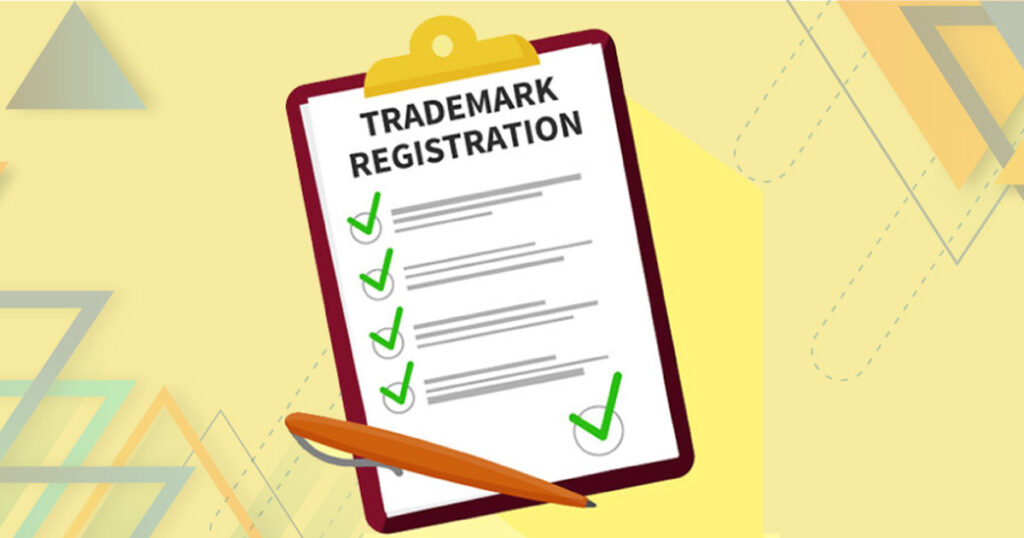We specialize in providing comprehensive trademark registration services to protect your brand identity. Our expert team guides you through every step of the registration process, ensuring that your trademarks are properly filed and legally safeguarded. With a deep understanding of intellectual property law, we help businesses of all sizes navigate the complexities of trademark registration, from conducting thorough searches to handling applications and resolving disputes. Trust us to enhance your brand’s value and ensure its uniqueness in the marketplace
Get in touch

Trademark Registration
Trademark registration is the process of legally securing your brand’s unique identifier—such as a logo, name, or slogan—against unauthorized use. This ensures exclusive rights to your trademark, helping to prevent confusion in the marketplace. The registration process typically involves conducting a trademark search, filing an application with the relevant authority, and maintaining your trademark through renewals. By registering your trademark, you enhance your brand’s protection, increase its value, and gain the ability to take legal action against infringements.
Procedure of Trademark registration
Trademark Search: Conduct a thorough search to ensure that your desired trademark is not already in use. This helps avoid potential conflicts and rejections.
Application Preparation: Prepare the trademark application, including details such as the owner’s information, trademark representation, and goods or services associated with the mark.
Filing the Application: Submit the application to the relevant trademark office (e.g., USPTO in the United States) along with the required fees.
Examination: The trademark office reviews the application for compliance and potential conflicts. This may involve an examination report, requesting clarifications or modifications.
Publication: If the application passes examination, it is published in the official gazette, allowing third parties to oppose the registration if they believe it infringes on their rights.
Opposition Period: There is typically a set period during which anyone can file an opposition to your trademark registration. If no opposition is filed, the process continues.
Registration: If there are no oppositions or if they are resolved in your favor, the trademark is officially registered, and you will receive a registration certificate.
Renewal: Trademark registrations need to be renewed periodically (usually every 10 years) to maintain protection.
By following these steps, you can effectively secure your brand’s trademark and enjoy the legal protections it offers.

Benefits of Trademark Registration
Legal Protection: Registered trademarks provide exclusive rights, preventing others from using a similar mark for related goods or services.
Brand Recognition: A registered trademark enhances your brand’s visibility and credibility, making it easier for consumers to identify and trust your products.
Asset Value: Trademarks can increase the overall value of your business, making it more attractive to investors and potential buyers.
Nationwide Protection: Registration grants protection across the entire country, unlike common law rights, which may be limited to specific geographic areas.
Increased Enforcement: A registered trademark gives you the right to take legal action against infringers, making it easier to defend your brand.
Public Notice: Registration provides public notice of your ownership, reducing the likelihood of others claiming rights to your trademark.
Exclusive Use: You gain the exclusive right to use the trademark in connection with your goods or services, enhancing your competitive advantage.
International Benefits: A registered trademark can simplify the process of obtaining protection in other countries, especially if you file under international treaties.
Enhanced Licensing Opportunities: A registered trademark can facilitate licensing agreements, allowing you to generate additional revenue through brand partnerships.
Deterrent Against Infringement: The presence of a registered trademark can deter others from attempting to use a similar mark, protecting your brand’s integrity.
Overall, trademark registration is a crucial step in safeguarding your brand and ensuring its long-term success.
Trademark Registration fees
In India, the fees for trademark registration can vary based on the type of applicant (individual/startup/small enterprise vs. others) and the number of classes of goods or services. Here’s a general overview:
Application Fees:
- For Individuals/Startups/Small Enterprises:
- ₹4,500 per class for online applications.
- For Others (Companies, Firms, etc.):
- ₹9,000 per class for online applications.
- For Individuals/Startups/Small Enterprises:
Additional Fees:
- Physical Filing: Typically higher than online fees (₹5,000 for individuals/startups/small enterprises and ₹10,000 for others).
- Opposition Fees: ₹2,000 for filing a notice of opposition.
- Renewal Fees: ₹10,000 per class for online renewals.
Legal Fees: If you choose to hire a trademark attorney or agency for assistance, legal fees can range from ₹5,000 to ₹30,000 or more, depending on the complexity of your application and the services provided.
International Fees: For seeking protection in other countries, costs will depend on the specific jurisdictions and the filing method (like the Madrid Protocol).
It’s always advisable to check the official website of the Controller General of Patents, Designs, and Trademarks (CGPDTM) for the latest fee structure and any changes.
Contact us today !
